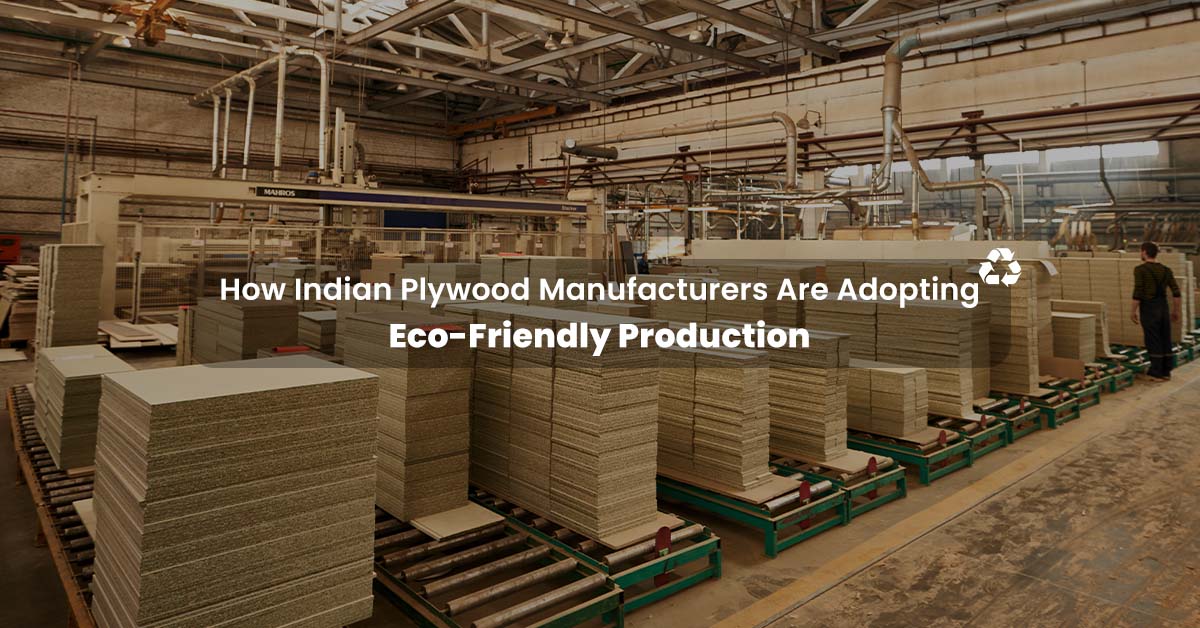
How Indian Plywood Manufacturers Are Adopting Eco-Friendly Production
The Indian plywood sector, long associated with impenetrable woods and chemical-laden workshops, is quietly rewriting its history. Across bustling industrial zones and quieter rural settings, plywood manufacturers in Yamunanagar are reimagining their craft, not just as producers of timber sheets but also as custodians of sustainable innovation.
This shift is motivated by more than just compliance, but also by a rising realization that environmental responsibility and business success can coexist. From raw material sourcing to the buzz of solar-powered factories, a green revolution is changing how plywood gets to homes and construction sites, merging heritage with conscious technology.
Rethinking Raw Materials at the Roots of Change
From the forests to farms
Today, the leading plywood manufacturers in Yamunanagar, such as Agni Ply, are increasingly turning to agroforestry, which involves planting fast-growing species like poplar and bamboo on marginal terrain. These plants, which were formerly judged inadequate, now serve as the foundation for environmentally friendly veneer manufacturing.
Farmers collaborate with businesses to plant rows of fast-maturing saplings, reducing pressure on natural ecosystems while providing a steady income for rural communities.
Established firms such as Vinawood, Century Plywood, National Plywood Industries, and SRG Plywood are among the top 20 plywood brands in India for 2025, offering specialized goods ranging from moisture-resistant plywood for kitchens and bathrooms to fire-retardant alternatives for added safety. These brands have established distinctive distribution strategies, with some focusing on direct-to-consumer sales, while others prioritize wholesale and dealer networks to reach broad market sectors.
The Rise of Alternative Fibers
To create plywood alternatives, innovators are turning to nontraditional materials such as agricultural waste, reclaimed wood, and even crop residues. Rice husks, sugarcane bagasse, and coconut shells, which were previously dumped as byproducts, are now repurposed as composite boards.
Sun-Drenched Manufacturing Facilities
Rooftops of plywood mills, which were once naked, now shine with solar panels. Manufacturing companies are investing in renewable energy to power kilns, cutting machines, and assembly lines. While the initial transition necessitated modifying aging infrastructure, the long-term benefits—lower carbon footprints and increased energy independence—have prompted widespread adoption.
More efficient production
Precision technologies reduce waste throughout the production process. Computer-guided lasers slice veneers with microscopic precision, utilizing every inch of timber. Infrared sensors monitor kiln temperatures in real time, enhancing drying processes and preventing heat misuse. These advances, while imperceptible to the end user, silently increase efficiency, ensuring that less energy and raw materials are wasted in the quest for perfection.
Building a Legacy
Agni Ply is more than a product; it's also a partnership. As one of the leading plywood manufacturers in Yamunanagar, the brand supports builders, architects, and homeowners from the first blueprint to the last nail with materials that inspire creativity and withstand life's demands. Their plywood is more than just useful; it serves as a foundation for memories, a backdrop for growth, and a silent custodian of important locations.
Whether you're building a kitchen that can withstand monsoons, a living room that emanates warmth, or a business complex that requires durability, Agni Ply provides the quality assurance that generations have come to expect. In a world full of shortcuts, Agni Ply remains firm, demonstrating that genuine strength is found in precision, care, and an unwavering devotion to perfection.
Conclusion
As environmental concerns gain traction around the world, plywood manufacturers in Yamunanagar are reacting with long-term solutions that balance quality, cost, and responsibility. Yamunanagar plywood firms, such as Agni Ply, are leading the green revolution by integrating agroforestry, employing low-emission adhesives, and improving energy utilization and waste reduction.
Brands like Agni Ply are at the forefront of this shift, demonstrating that eco-friendliness and craftsmanship are compatible. With continuing investment in technology and ethical standards, the future of plywood in India appears to be not only strong but also sustainable.
